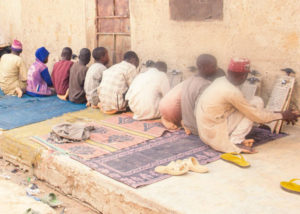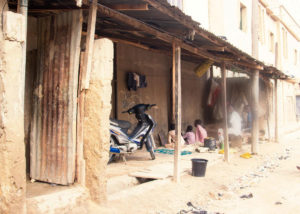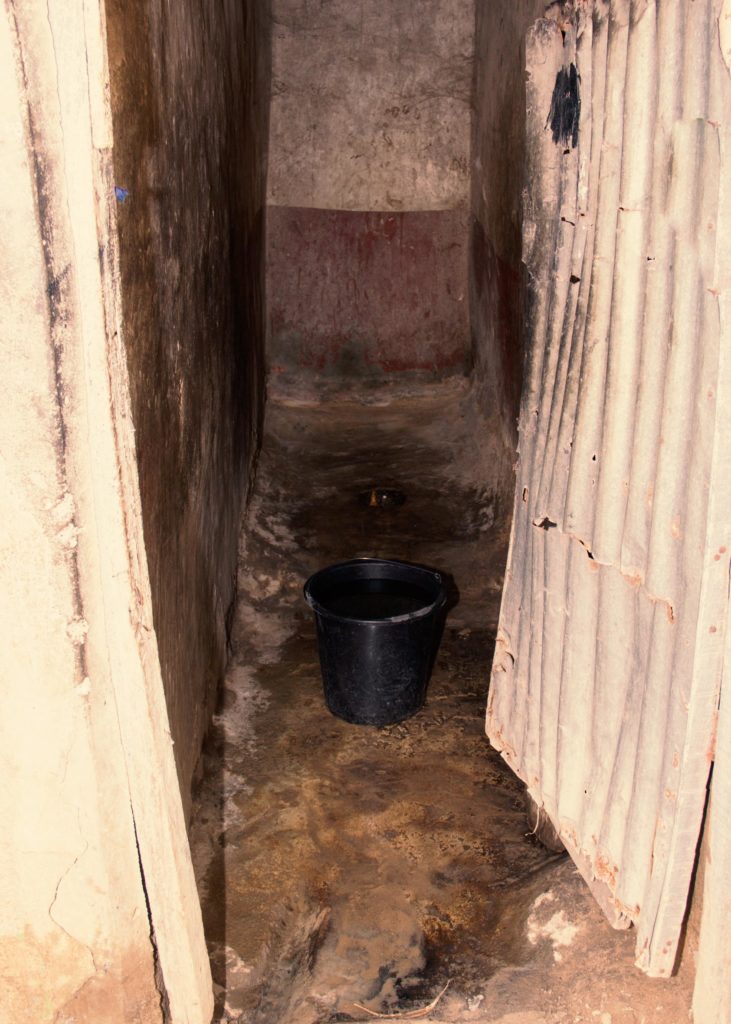Kano city has nearly 1,400 Qur’anic schools called “Tsangaya”, teaching about 150,000 boys aged between 5-14 years known as “Almajiris”. These are often children from rural areas who have left home to receive an Islamic education. Most of these non-formal schools are without sanitation and hygiene facilities which has led to high open defecation (OD) rates among the Almajiris. This blog calls for urgent research and for high-level stakeholders, including the government, to take evidence-informed action to tackle this problem. Vitally, it calls for Tsangaya schools to be included in sanitation and hygiene programmes that schools in the formal educational system in Nigeria currently benefit from.
Background
The practice of open defecation (OD) is common in countries and situations where toilet facilities and services are not readily available. Well-documented adverse impacts directly traceable to unsafe management of human excreta include huge losses in economy, lives, dignity, health, among others. In Nigeria, available statistics have shown that over 48 million people (23% of the population) practise OD), which is the second highest globally. Nigeria has 774 Local Government Areas (LGAs), out of which only 78 have been certified and validated in 2021 as open defecation free (ODF). It is imperative to note that, Jigawa and Katsina State who share boundaries with Kano State have 26 and 24 of their LGAs declared ODF respectively.
It was discovered that many parts of the country battled with high levels of water borne diseases traceable to poor sanitation practices especially OD. Consequently, this led to the declaration of a state of emergency in 2019 in the WASH sector by the Nigerian authorities, and the subsequent signing of a Presidential Executive Order titled “The open defecation free Nigeria by 2025 and other related matters Order”.
The focus of this story, Kano city, the second largest metropolis in Nigeria, is the administrative headquarters and capital city of Kano State. The estimated population of the city is over 5 million with an annual growth rate of 3.4% which is one of the highest in the country. The city has 8 Local Government Councils, however, none of them are validated as ODF. A successful city is one where all its inhabitants live a productive, healthy and dignified life in an environment free from faecal contamination especially OD. The city is an important commercial, industrial and educational centre attracting millions of people, including the Almajiri, from all parts of the country and beyond.
The Almajiri: Learning, lifestyle and livelihood
The Almaijiri is a term borrowed from the Arabic word “Al-muhajir (plural Al-Muhajirun)” meaning migrants. It is often referred to a group of migrants or errant children who left the comfort of their homes and families in search for Islamic education in the Qur’anic school called “Tsangaya” through the process often referred to as “Almajirci”. The Almajirci is believed to be a process, or rather a spiritual journey, for knowledge acquisition by the Almajiri under the guidance of the teacher or spiritual guide of foster father called “Mallam or Alaramma”.

The Qur’anic educational system has been in existence in northern Nigeria for over 500 years, thus, believed to be the backbone of socialisation as well as the only accepted known medium of learning and understanding the teachings and social importance of the Islamic religion (2). Schools under this educational system are categorised either as integrated or non-integrated. The Tsangaya is a non-formal educational system that does not integrate the conventional education curriculum in its learning process.
In Kano City alone, there are nearly 1,400 Qur’anic schools “Tsangaya” imparting knowledge to about 150,000 Almajiris (2). It is important to note that, the population of the Almajiris is dynamic as it grows bigger during the dry season and shrinks in the rainy season, this is because, they go back to their communities at on-set of the rainy season to engage in farming activities, and return to the city at the end of crop harvest. Most recently, the population of Almajiri children has declined because some were repatriated back to their states due to the Covid-19 pandemic and some were also integrated into the government’s supported Qur’anic model schools (2). Most of the Almajiris are within the 5-14 age group, although there are a few above 15 years old.
The means of livelihood of the Almajiri children in most cases is largely from alms they receive through begging or running errands such as laundry and cleaning in some households, and in return they are given food to eat. In some cases, they engage in other activities such as shoe repairs.
In terms of shelter, the learning centres are quite small in size while the accommodations are grossly inadequate for accommodating such a large population. Thus, in most cases, they squat in the learning centres or the porches of residences in the neighbourhood.

Services focusing on WASH in schools
In Kano State, there are quite a number of interventions targeting schools. These interventions are done as collaborations or partnerships between the Federal and State governments with support of development partners (such as UNICEF and FCDO) and NGOs (for example Khalifa Dankadai Charitable (KDC) Foundation) (1). These interventions are mostly targeting provision of learning facilities such as classrooms, furniture and toilets in the formal and the integrated Quranic and Islamiyya schools (2).
For example, recently, Kano State Government and UNICEF jointly constructed about 224 sanitation (toilet) facilities in schools (mostly primary schools) across the state under the WASH in schools’ initiative (3). In another recent development, the government of Kano State has acquired land to build 50 public toilets in strategic places across the state, in an effort to address the rampant practice of OD.
Unfortunately, the informal Almajiri schools were not part of the beneficiaries of these laudable initiatives. From my observations and interviews, most of the Almajiri schools are without sanitation and hygiene facilities, or have inadequate facilities for the sheer numbers of children they need to serve. As they are not integrated into the formal education system they are therefore excluded in current sanitation and hygiene programmes in most towns and cities in Nigeria. Consequently, the absence of sanitation facilities in most of these schools leads to the prevalence of OD among the Almajiris.

One thing which is certain is that the adverse effects of OD on public and environmental health, economy and societal sense of decency knows no boundary. Ironically, the victims are not only those who practice OD. The non-inclusion of Almajiri children makes the entire society vulnerable to the impacts of OD. For example, there are many reported cases of indiscriminate OD among the Almajiri children by the residents of the neighborhoods where the Almajiri schools are located.
Tracing back this practice, most of the Almajiri children come from the rural communities of Kano State and other neighboring states, where OD among peers and others is normal practice. For this, they inherently come to the urban area along with the OD culture, and the behaviour is aggravated by the lack of toilet facilities available in the Almajiri system.
Recommendations
To address this challenge, there is the urgent need for:
- In-depth and evidence-based research to evaluate the status of WASH facilities in the Almajiri Schools in terms of availability, adequacy, privacy and maintenance.
- Raise the profile of the challenge through partnership and engagement between high-level stakeholders (government, development partners, NGOs, CSOs, religious and traditional leaders, private companies, professionals and philanthropists), and design evidence-based interventions (funding, facilities, services, technical support) to address the OD issue.
- High-level and sustained advocacy towards good sanitation and hygiene practice among the Almajiris.
- Proper orientation of the Almajiris and their teachers on WASH matters with the view to changing their behaviour and accept best contemporary hygienic practices, and
- Revisit the formulation of new and existing policy and practices for the provision and effective and sustained use of WASH facilities in all informal schools in the city.
For this piece of work, the author interviewed the Kano State Qur’anic and Islamiyya Schools Management Board, as well as Almajiri children.
References (not available online):
1. Kano State Qur’anic and Islamiyya Schools Management Board (KSQISMB) (2019). Census of Integrated and Non-Integrated Qur’anic Schools in Kano State: A Comprehensive Report.
2. Kano State Qur’anic and Islamiyya Schools Management Board (KSQISMB), (2022). Key Informant Interview.
3. Strategies for Open defecation Containment: Kano State as Case Study. Paper presented at the Professional Development Forum organized by Nigerian Institute of Civil Engineers.





